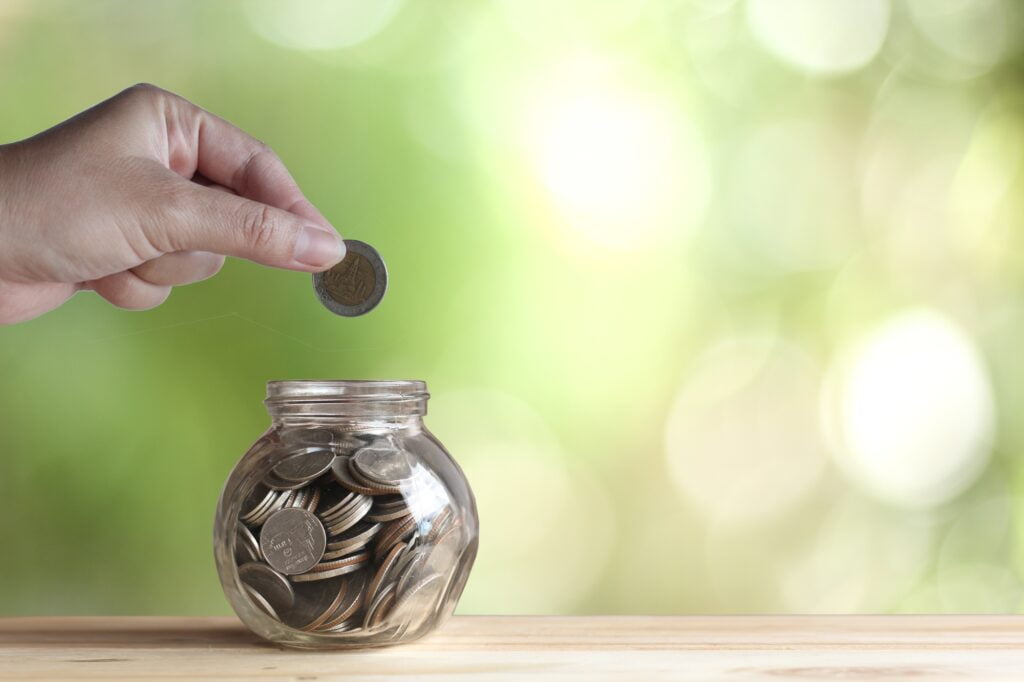
You pull out your credit card and pay it back over time when you desire something. Too many people these days think that this kind of thinking makes sense. Here are ten good reasons to save:
Get financially independent.
Various people have different opinions about what it signifies to be prosperous. Most people think being “rich” or “wealthy” means living on your own money and having savings. Having control over your money means you can make choices that have nothing to do with getting paid.
This could mean being capable of enjoying a vacation whenever you want, quitting your job and going back to school to change careers, starting their own business or investing in someone else’s, helping family members, taking a lower-paying job that is more emotionally rewarding than financially beneficial, or, a big one these days, retiring when you want to instead of working because you have to.
Financial independence is not the same as being rich, but not having to depend on a certain paycheck can leave you feeling rich beyond your wildest dreams! No matter what you mean by rich, it would help to have savings you can count on.
Save 50% on all your purchases and 24% on groceries.
If you usually buy everything with your credit card and don’t pay it off in full every month because of interest charges, you’re probably paying at least 50% more for everything you buy. If you need credit cards to live how you want, stop using them and save up for the items purchased beforehand.
With savings, you can make purchases when they are on sale and devote yourself to better spending decisions. People who have saved money can also stock up on food when it’s on sale. One author says that if you do this, you can skip one grocery trip a month and save 24% on your grocery bill each year.
Buy a House
You can’t lend money for a down payment, so the bank won’t give you money to buy a house if you already own one. You must have saved up this money or had someone give it to you. You can’t borrow it.
The bank will consider lending you the rest of the money if your down payment is at least 5% of the price of the house. You must pay many other costs and fees when you purchase a home so you will need an extra 5% just for those. Savings are the key to being able to buy a house.
Getting out of debt
You must save money if you ever want to get out of debt. It seems strange. But you’ll never be able to pay off your credit cards if you keep and use them for every emergency. Even if you are great at planning, statistics show that half of us have at least one unexpected yearly expense.
So, you should save up to $500 to $1,000 as a backup fund before you pay off your credit cards quickly. Then, if something unexpected comes up, you can pay for it with your reserve fund instead of putting it on a credit card. Having a reserve fund will also help you see if your spending is getting way out of hand.
Annual Expenses
You must save for annual costs to have a good, mostly stress-free financial life. There might be money for gifts, trips, car maintenance, small home repairs, fixing broken appliances, real estate taxes, and maybe even income tax.
Using a line of credit to charge off high-interest credit cards or refinance a mortgage to pay off debt can be tempting. Still, it’s risky to keep putting expenses on credit and never pay them off. The best way to deal with these costs is to save money ahead of time. Not only will this save you cash, but it will also make you feel better.
Emergencies
We all know that emergencies happen, no matter how much we hope they won’t. A family member could get sick, you could have an emergency trip to take, your car could break down or get into an accident, bad weather could deluge your basement or break your pipes, or you might have to fly to a funeral of a loved one. These things can be costly, and we know we will probably have to deal with them occasionally.
To live a good life
Living with a lot of stress has a lot of negative effects on your body, mind, and emotions, and these effects last from paycheck to paycheck. People who don’t plan seem to go from one crisis to the next. A little-known fact is that being calm can lead to happiness.
Getting things in order won’t make you happy, but it can help. So much of your future is out of your hands, so putting money away to spend when needed is a way to organize and take charge of your future and finances. You can’t lose by saving and can only gain a better future.
Conclusion
Start today by putting aside a small amount of money from each paycheck until you have $500 to $1,000 saved up. If you get a bonus at work or a tax refund, you can use that to start saving or add to something you already have. As things come up and you must use your fund, put money back into it.
